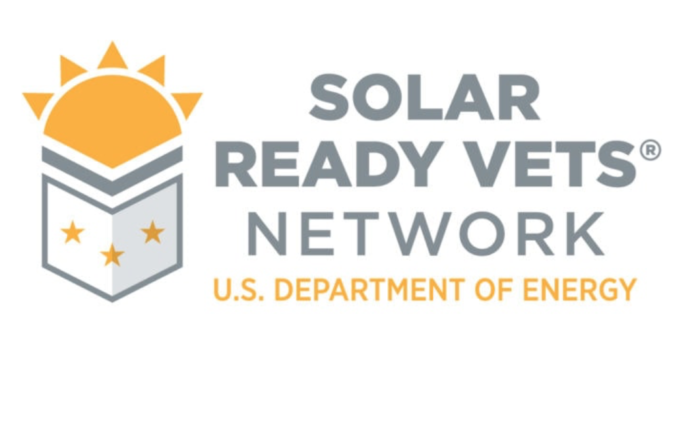The Solar Foundation, the North American Board of Certified Energy Practitioners (NABCEP) and other partners in the Solar Ready Vets Network have obtained approvals from the U.S. Department of Veterans Affairs to make exam fees for solar industry credentials eligible for reimbursement under the GI Bill.
These new benefits will make it easier for military service members and veterans to obtain solar certifications and pursue career advancement in the U.S.’ solar workforce.
With this approval, transitioning service members and veterans can now apply for the reimbursement of exam fees associated with the NABCEP Photovoltaic Associate (PVA) Credential, as well as all solar board certifications, including PV Installation Professional; PV Commissioning & Maintenance Specialist; PV Design Specialist; PV Installer Specialist; PV Technical Sales; and PV System Inspector. Established in 1944, the GI Bill covers costs associated with higher education and training programs for qualifying veterans of the U.S. Armed Forces.
A PVA Credential prepares individuals for careers in the solar industry and demonstrates their training and experience to potential employers. The PVA Credential is most often the first step toward a NABCEP Board Certification, and lends added recognition in a field with many career paths to pursue.
“With strong leadership, organizational and technical skills, veterans are well suited for a range of solar careers,” says Andrea Luecke, president and executive director at The Solar Foundation.
“Now that solar industry credentials are more accessible for veterans, solar companies will have greater opportunity to hire diverse and highly qualified employees with military experience,” Luecke adds.
This effort was completed under the Solar Opportunities and Readiness (SOAR) Initiative, which is led by The Solar Foundation with support from NABCEP and other partners. The SOAR Initiative engages solar industry leaders, certified training providers and career development networks to strengthen veteran solar career pathways. It is funded by the U.S. Department of Energy Solar Energy Technologies Office as part of the Solar Ready Vets Network.
The Solar Foundation is actively seeking employer partners in the solar industry to become engaged in direct impact and capacity building initiatives through the Solar Ready Vets Network, as well as veterans or transitioning service members interested in solar careers.
For more information on the Solar Ready Vets Network, click here.
